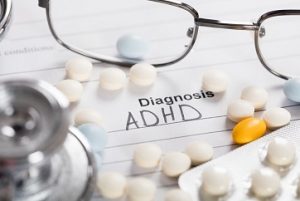Learning Disabilities
Learning disabilities are a big issue for families and schools. Many children suffer from some type of learning disability. In fact, one in every five children have some type of learning disability from Dyslexia to Attention Deficit Hyperactive Disorder or ADHD. (1)

Learning disabilities vary. The most prominent learning disability is Dyslexia or other forms of it in reading, writing and math. 39 percent of the learning disability population have some sort of Dyslexia, Dysgraphia or Dyscalculia. The second leading group comprises around 15 percent with dyspraxis or motor control and Attention Deficit. Roughly the same amount suffer from speech impairments. Around 10 percent are Autistic and the final percentages deal with emotional and other deeper intellectual issues. (2)
In response, schools create a variety of individual education programs but only 1 in 16 public school students with special needs receive the attention they need. 2.3 million students or 5 percent of the public population partakes in some type of IEP, while over 900,000 are enrolled in other health impairments. Hence it is important to understand these learning issues and help the children receive the help and aid they need to succeed.
With many perceptions on learning disabilities still not accurate enough within the general public, issues can arise when children are not properly care for. Most students with learning disabilities are bullied and misunderstood. This results in poorer academic success. In 2011, over 30 percent were held back a grade, and around 50 percent faced expulsion. Due to the bullying and lack of understanding by both parents and teachers, these numbers remain high. (3)
Parents themselves find themselves conflicted. One third of parents do not feel they can handle a child with a learning disability. Another third, understands the disability but feel they cannot properly help the child. Another third feel they can help their child and remain optimistic. (4)
If not helped, these children are three times more likely to drop out of school and two times more likely to be jobless. (5)
Parents and teachers need to become more proactive and aware as well. Unfortunately 33 percent of teachers feel children with learning disabilities are just lazy. 43 percent of parents say they would not want others to even know of their child’s issue and 48 percent believe their child will outgrow the disability. (6)
These alarming trends lead to chaos in the child’s life. The child does not receive the specialized education and treatment he needs. The child needs help not only from parents and teachers but also experts in the learning disability to help guide the child. In order to combat this, society needs more awareness. Awareness needs to be raised about disabilities beyond even the more basic issues. Secondly, parents need to be more proactive in learning about the issue and addressing it with the appropriate parties. Third, schools need to ensure that teachers are better equipped to handle special needs and have some type of minimal training in identifying it. Finally, schools need to have the appropriate programs necessary to help these children with specialized programs. While there are some programs, there needs to be more to meet the ever growing needs of these children in the public school systems.

In identifying these issues, many teachers, as well as school counselors, look to specialize in special education. Some already have a primary background in these studies during their undergraduate and graduate studies and others may seek various certifications to enhance their knowledge in these backgrounds. Clinical counselors, as well as teachers and school counselors are looking at ways to be more educated in helping students deal with learning disabilities.
ADHD
One specialized area of concern deals with Attention Deficit Hyperactive Disorder. This disorder as noted deals with around 15 percent of the student population. The student is unable to focus for long periods of time and may also exhibit problems sitting still. In some cases, it is only attention, but in other cases, both lack of concentration and inability to remain calm can be present in ADHD.
In regards to ADHD, inattention is one key symptom. In looking at these symptoms, the child may be disorganized, lack focus, make careless mistakes, forget tasks consistently, and can become easily distracted. (7)
ADHD also can affect hyperactivity. The child may have a hard time sitting in a seat for a long period of time. Furthermore the child will need to get up and feel the need to walk around. In other cases, the child may feel the need to climb around things he or she should not be around. Also excessive talking is a sign of this hyperactivity. (8)

ADHD also affects impulse. Impulsivity includes impatience, not thinking things through before acting, The child may have a hard time waiting his turn to speak, interrupt others, answer a question before finishing the question, or start conversations at inappropriate times. (9)
While hyperactivity can diminish, inattentiveness can last into adulthood and cause a variety of adult issues. It is important to treat ADHD. Some coping strategies can be employed with a counseling professional and later implemented at home and in school. Sometimes coping strategies are enough, while in some other cases, medication is recommended to help curb the problem.
ADHD is a big issue and requires professionals in the school setting as well the clinical to diagnose it and help cope. While licensed professional counselors working with doctors are the primary treatment venue, non licensed personal can also become certified in ADHD Consulting and help parents and teachers cope with the issue. Many behavioral issues can be addressed.
ADHD Consulting Program
The American Institute of Health Care Professionals offers an online, independent study program for professionals seeking certification in ADHD Consulting. It is open to licensed professional counselors, as well non licensed counselors or even educators. The primary purpose of the certification is to help school counselors and other educators have a stronger understanding of ADHD and how to help students through behavioral coping strategies deal with ADHD. By working with parents and the child, better outcomes can be possibly found and if necessary, direction to licensed professional counselors or medical professionals who can prescribe the necessary medication.

If you are a licensed professional counselor seeking a certification in ADHD Consulting, or a non licensed counselor or educator, you may wish to consider earning this certification and utilizing it in your professional career. The certification is good for four years and can be renewed. After completing the required courses for those with no ADHD educational background, one can then apply for certification within the organization.
Please consider and review the ADHD Consulting Program and see if it matches your academic and professional goals.
